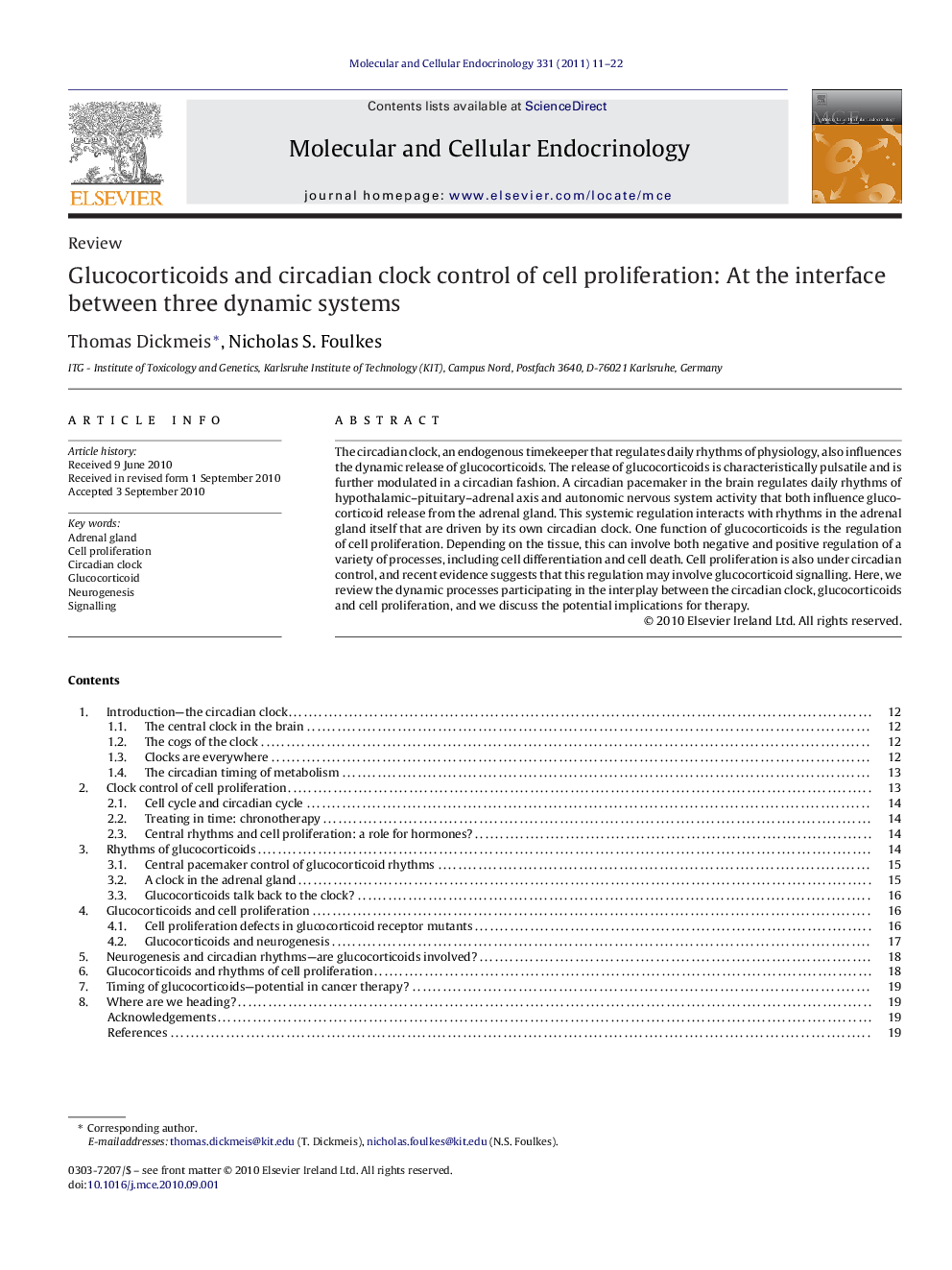| Article ID | Journal | Published Year | Pages | File Type |
|---|---|---|---|---|
| 2196687 | Molecular and Cellular Endocrinology | 2011 | 12 Pages |
The circadian clock, an endogenous timekeeper that regulates daily rhythms of physiology, also influences the dynamic release of glucocorticoids. The release of glucocorticoids is characteristically pulsatile and is further modulated in a circadian fashion. A circadian pacemaker in the brain regulates daily rhythms of hypothalamic–pituitary–adrenal axis and autonomic nervous system activity that both influence glucocorticoid release from the adrenal gland. This systemic regulation interacts with rhythms in the adrenal gland itself that are driven by its own circadian clock. One function of glucocorticoids is the regulation of cell proliferation. Depending on the tissue, this can involve both negative and positive regulation of a variety of processes, including cell differentiation and cell death. Cell proliferation is also under circadian control, and recent evidence suggests that this regulation may involve glucocorticoid signalling. Here, we review the dynamic processes participating in the interplay between the circadian clock, glucocorticoids and cell proliferation, and we discuss the potential implications for therapy.
